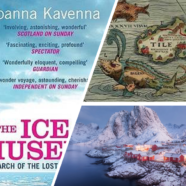Utopian Hope
This lecture considered how the idea of Utopia helps us galvanise political literary readings within the context of an increasingly dystopian sense of global crisis. Despite the seemingly relentless, dystopian nature of these issues, I argue that contemporary writers are responding by using utopian registers in their fiction – anticipating alternative ways of imagining subjectivity, community and historical modes of belonging through formal and stylistic innovation.
Drawing on my recent book, Utopia and the Contemporary British Novel (Cambridge University Press, 2019), I noted that literary scholars such as Fredric Jameson and Peter Boxall have commented on this distinctly “utopian turn” in twenty-first century Anglophone writing. This can be seen in the works of writers such as Juliana Spahr, Nnedi Okorafor, David Mitchell, Nalo Hopkinson, China Miéville, Colson Whitehead, Samuel Delany, Jennifer Egan, Kim Stanley Robinson, Jim Crace, Maggie Gee, Ali Smith, Hari Kunzru and Emily St. John Mandel. This is matched by a similar interrogation of hope as an index of political anticipation in influential theoretical works by Lynne Segal (2017), Terry Eagleton (2015), Lauren Berlant (2011) and David Harvey (2000).
This lectured was delivered at the University of Loughborough in April 2021, as part of a guest lecture series organised by the Department of English and Centre for Research in Communication and Culture. The lecture and Q&A was recorded and you can watch below or on my YouTube channel.







 Dr Caroline Edwards is Senior Lecturer in Modern & Contemporary Literature at Birkbeck, University of London. Her research and teaching specialisms are in 21st century literature and critical theory, science fiction and post-apocalyptic narratives, Marxist aesthetics, and utopianism.
Dr Caroline Edwards is Senior Lecturer in Modern & Contemporary Literature at Birkbeck, University of London. Her research and teaching specialisms are in 21st century literature and critical theory, science fiction and post-apocalyptic narratives, Marxist aesthetics, and utopianism.
Follow / Contact